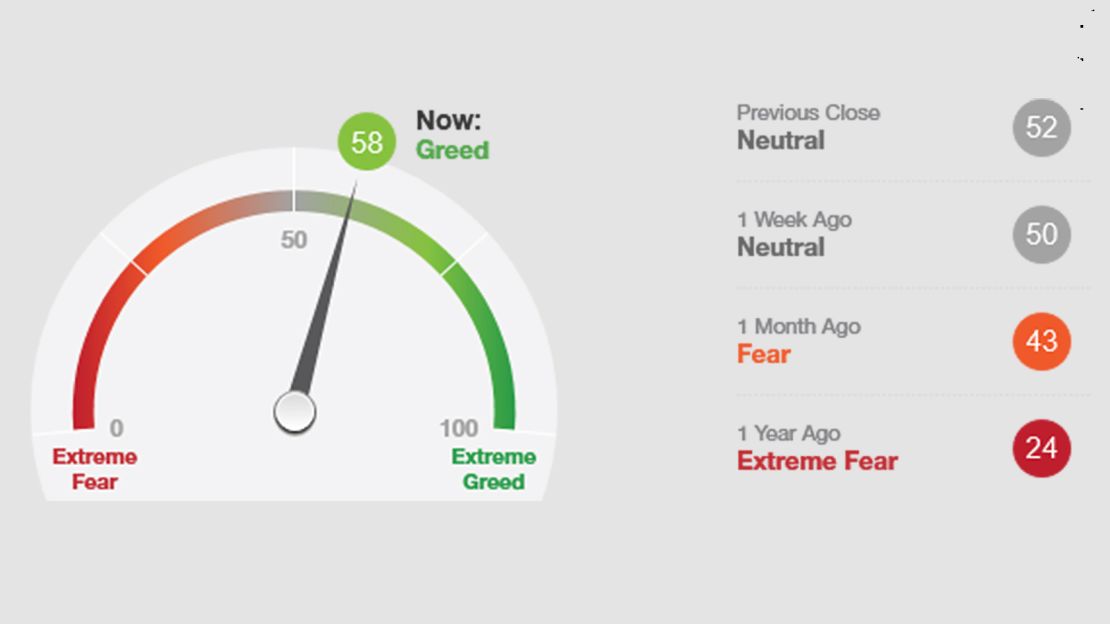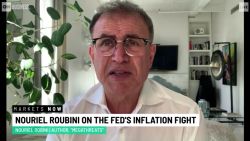- Source:
CNN Business
"
data-fave-thumbnails="{"big": { "uri": "https://media.cnn.com/api/v1/images/stellar/prod/200422143332-alicia-levine-markets-now.jpg?q=x_3,y_0,h_1546,w_2747,c_crop/h_540,w_960" }, "small": { "uri": "https://media.cnn.com/api/v1/images/stellar/prod/200422143332-alicia-levine-markets-now.jpg?q=x_3,y_0,h_1546,w_2747,c_crop/h_540,w_960" } }"
data-vr-video="false"
data-show-html=""
data-byline-html="
"
data-timestamp-html="
Updated
2:12 PM EDT, Mon June 1, 2020
"
data-check-event-based-preview=""
data-is-vertical-video-embed="false"
data-network-id=""
data-publish-date="2020-04-22T18:37:35Z"
data-video-section="business"
data-canonical-url="https://www.cnn.com/videos/business/2020/04/22/markets-now-alicia-levine-risk-market-recovery-orig.cnn-business"
data-branding-key="markets-now"
data-video-slug="markets now alicia levine risk market recovery orig"
data-first-publish-slug="markets now alicia levine risk market recovery orig"
data-video-tags="banking, finance and investments,business and industry sectors,business, economy and trade,financial markets and investing,insurance,risk management,securities trading,stock markets"
data-details="">
Strategist: Biggest risk to market is a second outbreak
Now playing
- Source:
CNN Business
- Source:
CNN Business
"
data-fave-thumbnails="{"big": { "uri": "https://media.cnn.com/api/v1/images/stellar/prod/221221133430-tech-stocks-outlook-2023-dan-ives-jg-orig-00001227.png?c=16x9&q=h_540,w_960,c_fill" }, "small": { "uri": "https://media.cnn.com/api/v1/images/stellar/prod/221221133430-tech-stocks-outlook-2023-dan-ives-jg-orig-00001227.png?c=16x9&q=h_540,w_960,c_fill" } }"
data-vr-video="false"
data-show-html=""
data-byline-html="
"
data-timestamp-html="
Updated
2:12 PM EDT, Mon June 1, 2020
"
data-check-event-based-preview=""
data-is-vertical-video-embed="false"
data-network-id=""
data-publish-date="2022-12-21T18:35:28Z"
data-video-section="business"
data-canonical-url="https://www.cnn.com/videos/business/2022/12/21/tech-stocks-outlook-2023-dan-ives-jg-orig.cnn-business"
data-branding-key="markets-now"
data-video-slug="tech stocks outlook 2023 dan ives jg orig"
data-first-publish-slug="tech stocks outlook 2023 dan ives jg orig"
data-video-tags="banking, finance and investments,business, economy and trade,domestic alerts,domestic-business,financial markets and investing,iab-business,iab-business and finance,iab-business banking & finance,iab-financial industry,iab-industries,iab-personal finance,iab-personal investing,iab-stocks and bonds,iab-technology & computing,international alerts,international-business,securities trading,stock markets,technology"
data-details="">
Analyst: Tech stocks will rise 20% in 2023
- Source:
CNN Business
"
data-fave-thumbnails="{"big": { "uri": "https://media.cnn.com/api/v1/images/stellar/prod/220520163214-us-homes-for-sale-0314.jpg?c=16x9&q=h_540,w_960,c_fill" }, "small": { "uri": "https://media.cnn.com/api/v1/images/stellar/prod/220520163214-us-homes-for-sale-0314.jpg?c=16x9&q=h_540,w_960,c_fill" } }"
data-vr-video="false"
data-show-html=""
data-byline-html="
"
data-timestamp-html="
Updated
2:12 PM EDT, Mon June 1, 2020
"
data-check-event-based-preview=""
data-is-vertical-video-embed="false"
data-network-id=""
data-publish-date="2022-12-14T17:51:40Z"
data-video-section="business"
data-canonical-url="https://www.cnn.com/videos/business/2022/12/14/mortgage-rates-and-home-prices-rising-2023-jg-orig.cnn-business"
data-branding-key="markets-now"
data-video-slug="mortgage rates and home prices rising 2023 jg orig"
data-first-publish-slug="mortgage rates and home prices rising 2023 jg orig"
data-video-tags="banking, finance and investments,business and industry sectors,business, economy and trade,domestic alerts,domestic-business,economic indicators,economy and economic indicators,home prices,iab-business,iab-business and finance,iab-business banking & finance,iab-economy,iab-financial industry,iab-home financing,iab-houses,iab-housing market,iab-industries,iab-personal debt,iab-personal finance,iab-real estate,iab-real estate buying and selling,iab-real estate industry,international alerts,international-business,mortgage banking and finance,mortgage loans,mortgage rates,real estate,real estate agents,real estate sector performance"
data-details="">
Here's where mortgage rates and home prices may be headed in 2023
Now playing
- Source:
CNN Business
- Source:
CNN Business
"
data-fave-thumbnails="{"big": { "uri": "https://media.cnn.com/api/v1/images/stellar/prod/221110145036-01-planet-fitness-gym-file.jpg?c=16x9&q=h_540,w_960,c_fill" }, "small": { "uri": "https://media.cnn.com/api/v1/images/stellar/prod/221110145036-01-planet-fitness-gym-file.jpg?c=16x9&q=h_540,w_960,c_fill" } }"
data-vr-video="false"
data-show-html=""
data-byline-html="
"
data-timestamp-html="
Updated
2:12 PM EDT, Mon June 1, 2020
"
data-check-event-based-preview=""
data-is-vertical-video-embed="false"
data-network-id=""
data-publish-date="2022-12-07T18:59:29Z"
data-video-section="business"
data-canonical-url="https://www.cnn.com/videos/business/2022/12/07/planet-fitness-ceo-10-membership-orig.cnn-business"
data-branding-key="markets-now"
data-video-slug="planet fitness ceo $10 membership orig"
data-first-publish-slug="planet fitness ceo $10 membership orig"
data-video-tags="business, economy and trade,companies,diet, nutrition and fitness,domestic alerts,domestic-business,domestic-health and science,economic conditions,economic indicators,economy and economic indicators,exercise and fitness,fitness centers,health and medical,iab-business and finance,iab-economy,iab-fitness and exercise,iab-healthy living,inflation,international alerts,international-business,international-health and science,planet fitness"
data-details="">
Planet Fitness CEO explains how it keeps gym memberships at $10
- Source:
CNN Business
"
data-fave-thumbnails="{"big": { "uri": "https://media.cnn.com/api/v1/images/stellar/prod/221128081617-thanksgiving-traveler-1123.jpg?c=16x9&q=h_540,w_960,c_fill" }, "small": { "uri": "https://media.cnn.com/api/v1/images/stellar/prod/221128081617-thanksgiving-traveler-1123.jpg?c=16x9&q=h_540,w_960,c_fill" } }"
data-vr-video="false"
data-show-html=""
data-byline-html="
"
data-timestamp-html="
Updated
2:12 PM EDT, Mon June 1, 2020
"
data-check-event-based-preview=""
data-is-vertical-video-embed="false"
data-network-id=""
data-publish-date="2022-11-30T18:00:16Z"
data-video-section="business"
data-canonical-url="https://www.cnn.com/videos/business/2022/11/30/trivago-ceo-markets-now-zw-orig.cnn-business"
data-branding-key="markets-now"
data-video-slug="trivago ceo markets now zw orig"
data-first-publish-slug="trivago ceo markets now zw orig"
data-video-tags="companies,trivago"
data-details="">
trivago CEO: Travel costs are up. Here's how vacationers are reacting
Now playing
- Source:
CNN Business
- Source:
CNN Business
"
data-fave-thumbnails="{"big": { "uri": "https://media.cnn.com/api/v1/images/stellar/prod/221116141652-twitter-tesla.jpg?c=16x9&q=h_540,w_960,c_fill" }, "small": { "uri": "https://media.cnn.com/api/v1/images/stellar/prod/221116141652-twitter-tesla.jpg?c=16x9&q=h_540,w_960,c_fill" } }"
data-vr-video="false"
data-show-html=""
data-byline-html="
"
data-timestamp-html="
Updated
2:12 PM EDT, Mon June 1, 2020
"
data-check-event-based-preview=""
data-is-vertical-video-embed="false"
data-network-id=""
data-publish-date="2022-11-16T19:21:38Z"
data-video-section="business"
data-canonical-url="https://www.cnn.com/videos/business/2022/11/16/wedbush-elon-musk-affects-tesla-stock-markets-now-ht.cnn-business"
data-branding-key="markets-now"
data-video-slug="wedbush Elon Musk affects Tesla stock markets now ht"
data-first-publish-slug="wedbush Elon Musk affects Tesla stock markets now ht"
data-video-tags="business figures,companies,elon musk,internet and www,social media,technology,tesla inc,twitter"
data-details="">
Analyst: Musk 'circus' is hurting Tesla
Now playing
- Source:
CNN Business
- Source:
CNN Business
"
data-fave-thumbnails="{"big": { "uri": "https://media.cnn.com/api/v1/images/stellar/prod/221116140934-stock-markets-now.jpg?c=16x9&q=h_540,w_960,c_fill" }, "small": { "uri": "https://media.cnn.com/api/v1/images/stellar/prod/221116140934-stock-markets-now.jpg?c=16x9&q=h_540,w_960,c_fill" } }"
data-vr-video="false"
data-show-html=""
data-byline-html="
"
data-timestamp-html="
Updated
2:12 PM EDT, Mon June 1, 2020
"
data-check-event-based-preview=""
data-is-vertical-video-embed="false"
data-network-id=""
data-publish-date="2022-11-16T19:14:20Z"
data-video-section="business"
data-canonical-url="https://www.cnn.com/videos/business/2022/11/16/where-are-stocks-headed-next-markets-now-ht.cnn-business"
data-branding-key="markets-now"
data-video-slug="where are stocks headed next markets now ht"
data-first-publish-slug="where are stocks headed next markets now ht"
data-video-tags="banking, finance and investments,business, economy and trade,charles schwab corp,companies,financial markets and investing,securities trading,stock markets"
data-details="">
Market strategist on where stocks are likely headed next
Now playing
- Source:
CNN Business
- Source:
CNNBusiness
"
data-fave-thumbnails="{"big": { "uri": "https://media.cnn.com/api/v1/images/stellar/prod/221102145953-matt-egan.jpg?c=16x9&q=h_540,w_960,c_fill" }, "small": { "uri": "https://media.cnn.com/api/v1/images/stellar/prod/221102145953-matt-egan.jpg?c=16x9&q=h_540,w_960,c_fill" } }"
data-vr-video="false"
data-show-html=""
data-byline-html="
"
data-timestamp-html="
Updated
2:12 PM EDT, Mon June 1, 2020
"
data-check-event-based-preview=""
data-is-vertical-video-embed="false"
data-network-id=""
data-publish-date="2022-11-02T19:19:57Z"
data-video-section="business"
data-canonical-url="https://www.cnn.com/videos/business/2022/11/02/federal-reserve-more-interest-rate-hikes-announced-egan-vpx.cnnbusiness"
data-branding-key="markets-now"
data-video-slug="federal reserve more interest rate hikes announced egan vpx"
data-first-publish-slug="federal reserve more interest rate hikes announced egan vpx"
data-video-tags="banking, finance and investments,business, economy and trade,government organizations - us,interest rates,the fed,us federal departments and agencies,us government independent agencies,economic policy,economy and economic indicators,monetary policy"
data-details="">
What the Fed's latest historic interest rate hike means
Now playing
- Source:
CNNBusiness
- Source:
CNN Business
"
data-fave-thumbnails="{"big": { "uri": "https://media.cnn.com/api/v1/images/stellar/prod/221102143603-01-jerome-powell-federal-reserve-interest-rates-hike-1102.jpg?c=16x9&q=h_540,w_960,c_fill" }, "small": { "uri": "https://media.cnn.com/api/v1/images/stellar/prod/221102143603-01-jerome-powell-federal-reserve-interest-rates-hike-1102.jpg?c=16x9&q=h_540,w_960,c_fill" } }"
data-vr-video="false"
data-show-html=""
data-byline-html="
"
data-timestamp-html="
Updated
2:12 PM EDT, Mon June 1, 2020
"
data-check-event-based-preview=""
data-is-vertical-video-embed="false"
data-network-id=""
data-publish-date="2022-11-02T19:10:05Z"
data-video-section="business"
data-canonical-url="https://www.cnn.com/videos/business/2022/11/02/powell-speech-fourth-straight-rate-hike-orig-fj.cnn-business"
data-branding-key="markets-now"
data-video-slug="powell speech fourth straight rate hike orig fj"
data-first-publish-slug="powell speech fourth straight rate hike orig fj"
data-video-tags="banking, finance and investments,business, economy and trade,economic conditions,economic growth,economic indicators,economy and economic indicators,government organizations - us,inflation,interest rates,jerome powell,political figures - us,the fed,us federal departments and agencies,us government independent agencies"
data-details="">
Fed's Powell: 'Time for easing rate increases is coming'
Now playing
- Source:
CNN Business
- Source:
CNN Business
"
data-fave-thumbnails="{"big": { "uri": "https://media.cnn.com/api/v1/images/stellar/prod/221019110914-global-recession-fears-restricted.jpg?c=16x9&q=h_540,w_960,c_fill" }, "small": { "uri": "https://media.cnn.com/api/v1/images/stellar/prod/221019110914-global-recession-fears-restricted.jpg?c=16x9&q=h_540,w_960,c_fill" } }"
data-vr-video="false"
data-show-html=""
data-byline-html="
"
data-timestamp-html="
Updated
2:12 PM EDT, Mon June 1, 2020
"
data-check-event-based-preview=""
data-is-vertical-video-embed="false"
data-network-id=""
data-publish-date="2022-11-02T16:55:00Z"
data-video-section="business"
data-canonical-url="https://www.cnn.com/videos/business/2022/11/02/recession-danielle-dimartino-booth-inflation-mc-markets-now.cnn-business"
data-branding-key="markets-now"
data-video-slug="recession danielle dimartino booth inflation mc markets now"
data-first-publish-slug="recession danielle dimartino booth inflation mc markets now"
data-video-tags=""
data-details="">
'Recession is pretty much a foregone conclusion:' Economist explains
- Source:
CNN Business
"
data-fave-thumbnails="{"big": { "uri": "https://media.cnn.com/api/v1/images/stellar/prod/211029135035-02-halloween-food-trick-or-treat.jpg?q=x_0,y_0,h_900,w_1599,c_fill/h_540,w_960" }, "small": { "uri": "https://media.cnn.com/api/v1/images/stellar/prod/211029135035-02-halloween-food-trick-or-treat.jpg?q=x_0,y_0,h_900,w_1599,c_fill/h_540,w_960" } }"
data-vr-video="false"
data-show-html=""
data-byline-html="
"
data-timestamp-html="
Updated
2:12 PM EDT, Mon June 1, 2020
"
data-check-event-based-preview=""
data-is-vertical-video-embed="false"
data-network-id=""
data-publish-date="2022-10-26T17:20:07Z"
data-video-section="business"
data-canonical-url="https://www.cnn.com/videos/business/2022/10/26/markets-now-halloween-spirit-popular-costumes-zw-orig.cnn-business"
data-branding-key="markets-now"
data-video-slug="markets now halloween spirit popular costumes zw orig"
data-first-publish-slug="markets now halloween spirit popular costumes zw orig"
data-video-tags="alison kosik,halloween,holidays and observances,misc people"
data-details="">
Spirit Halloween CEO lists some of the hottest costumes this year
Now playing
- Source:
CNN Business
- Source:
CNN Business
"
data-fave-thumbnails="{"big": { "uri": "https://media.cnn.com/api/v1/images/stellar/prod/221019155618-nouriel-roubini-markets-now.jpg?c=16x9&q=h_540,w_960,c_fill" }, "small": { "uri": "https://media.cnn.com/api/v1/images/stellar/prod/221019155618-nouriel-roubini-markets-now.jpg?c=16x9&q=h_540,w_960,c_fill" } }"
data-vr-video="false"
data-show-html=""
data-byline-html="
"
data-timestamp-html="
Updated
2:12 PM EDT, Mon June 1, 2020
"
data-check-event-based-preview=""
data-is-vertical-video-embed="false"
data-network-id=""
data-publish-date="2022-10-19T19:59:53Z"
data-video-section="business"
data-canonical-url="https://www.cnn.com/videos/business/2022/10/19/nouriel-roubini-markets-now.cnn-business"
data-branding-key="markets-now"
data-video-slug="Nouriel Roubini Markets Now"
data-first-publish-slug="Nouriel Roubini Markets Now"
data-video-tags=""
data-details="">
'Dr. Doom' explains why the Fed will lose its inflation battle
Now playing
- Source:
CNN Business
- Source:
CNN Business
"
data-fave-thumbnails="{"big": { "uri": "https://media.cnn.com/api/v1/images/stellar/prod/221012134745-inflation-job.jpg?c=16x9&q=h_540,w_960,c_fill" }, "small": { "uri": "https://media.cnn.com/api/v1/images/stellar/prod/221012134745-inflation-job.jpg?c=16x9&q=h_540,w_960,c_fill" } }"
data-vr-video="false"
data-show-html=""
data-byline-html="
"
data-timestamp-html="
Updated
2:12 PM EDT, Mon June 1, 2020
"
data-check-event-based-preview=""
data-is-vertical-video-embed="false"
data-network-id=""
data-publish-date="2022-10-12T17:59:16Z"
data-video-section="business"
data-canonical-url="https://www.cnn.com/videos/business/2022/10/12/nela-richardson-markets-now.cnn-business"
data-branding-key="markets-now"
data-video-slug="nela richardson markets now"
data-first-publish-slug="nela richardson markets now"
data-video-tags="business, economy and trade,economic conditions,economic indicators,economic policy,economy and economic indicators,inflation,labor and employment,labor sector performance"
data-details="">
Jobs economist: Worker shortage may keep inflation high
Now playing
- Source:
CNN Business
- Source:
CNN Business
"
data-fave-thumbnails="{"big": { "uri": "https://media.cnn.com/api/v1/images/stellar/prod/221005123812-stockx-products.jpg?c=16x9&q=h_540,w_960,c_fill" }, "small": { "uri": "https://media.cnn.com/api/v1/images/stellar/prod/221005123812-stockx-products.jpg?c=16x9&q=h_540,w_960,c_fill" } }"
data-vr-video="false"
data-show-html=""
data-byline-html="
"
data-timestamp-html="
Updated
2:12 PM EDT, Mon June 1, 2020
"
data-check-event-based-preview=""
data-is-vertical-video-embed="false"
data-network-id=""
data-publish-date="2022-10-05T17:17:26Z"
data-video-section="business"
data-canonical-url="https://www.cnn.com/videos/business/2022/10/05/markets-now-stockx-ceo-scott-cutler-authenticate-zw-orig.cnn-business"
data-branding-key="markets-now"
data-video-slug="markets now stockx ceo scott cutler authenticate zw orig"
data-first-publish-slug="markets now stockx ceo scott cutler authenticate zw orig"
data-video-tags=""
data-details="">
StockX CEO: Here's how we authenticate sneakers, trading cards before sale
Now playing
- Source:
CNN Business
- Source:
CNN Business
"
data-fave-thumbnails="{"big": { "uri": "https://media.cnn.com/api/v1/images/stellar/prod/220927095200-nyse-0926.jpg?c=16x9&q=h_540,w_960,c_fill" }, "small": { "uri": "https://media.cnn.com/api/v1/images/stellar/prod/220927095200-nyse-0926.jpg?c=16x9&q=h_540,w_960,c_fill" } }"
data-vr-video="false"
data-show-html=""
data-byline-html="
"
data-timestamp-html="
Updated
2:12 PM EDT, Mon June 1, 2020
"
data-check-event-based-preview=""
data-is-vertical-video-embed="false"
data-network-id=""
data-publish-date="2022-09-28T17:10:00Z"
data-video-section="business"
data-canonical-url="https://www.cnn.com/videos/business/2022/09/28/markets-now-kristen-bitterly-michell-recession-market-advice-zw-orig.cnn-business"
data-branding-key="markets-now"
data-video-slug="markets now Kristen bitterly michell recession market advice zw orig"
data-first-publish-slug="markets now Kristen bitterly michell recession market advice zw orig"
data-video-tags="banking, finance and investments,business, economy and trade,citigroup inc,companies,financial markets and investing"
data-details="">
Markets expert: It's time to play defense
Now playing
- Source:
CNN Business
- Source:
CNN Business
"
data-fave-thumbnails="{"big": { "uri": "https://media.cnn.com/api/v1/images/stellar/prod/220921125816-3-investing-tips-for-market-turmoil-david-bailin-orig-00003402.png?c=16x9&q=h_540,w_960,c_fill" }, "small": { "uri": "https://media.cnn.com/api/v1/images/stellar/prod/220921125816-3-investing-tips-for-market-turmoil-david-bailin-orig-00003402.png?c=16x9&q=h_540,w_960,c_fill" } }"
data-vr-video="false"
data-show-html=""
data-byline-html="
"
data-timestamp-html="
Updated
2:12 PM EDT, Mon June 1, 2020
"
data-check-event-based-preview=""
data-is-vertical-video-embed="false"
data-network-id=""
data-publish-date="2022-09-21T17:12:50Z"
data-video-section="business"
data-canonical-url="https://www.cnn.com/videos/business/2022/09/21/3-investing-tips-for-market-turmoil-david-bailin-orig.cnn-business"
data-branding-key="markets-now"
data-video-slug="3 investing tips for market turmoil david bailin orig"
data-first-publish-slug="3 investing tips for market turmoil david bailin orig"
data-video-tags=""
data-details="">
Investor shares 3 things you should do right now in this market
























